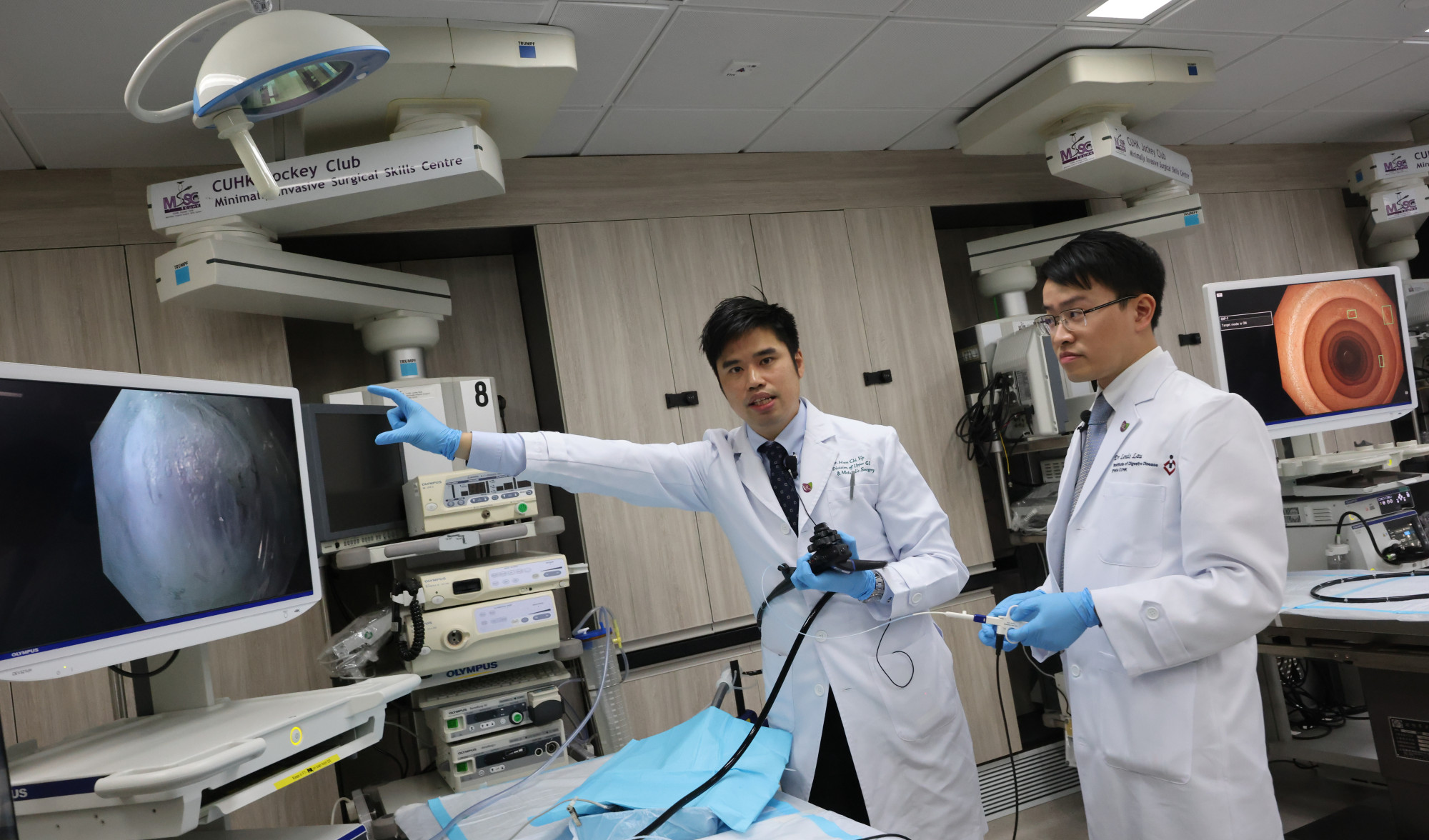Researchers at the Chinese University of Hong Kong’s medical faculty have found that artificial intelligence (AI) can help less experienced doctors spot tumours more accurately during colonoscopies.
AI was especially good at helping them identify smaller growths called adenomas, which might otherwise go undetected, said Dr Louis Lau Ho-shing, an assistant professor of medicine and therapeutics.
He said the team hoped using AI would reduce the “miss rate” in spotting such lesions.
Do you have questions about the biggest topics and trends from around the world? Get the answers with SCMP Knowledge, our new platform of curated content with explainers, FAQs, analyses and infographics brought to you by our award-winning team.

In a traditional colonoscopy, an endoscope, a device with a tiny camera, provides video footage for the doctor to examine the state of the patient’s large intestine, or colon.
Lau said traditional colonoscopies required “a high level of multitasking”, and doctors who were fatigued or less experienced risked missing smaller lesions.
“If these are missed, there is a chance they can progress to cancer in future,” he said.
The AI tool acted like “an extra pair of eyes” by identifying potential tumours in the video footage, he added.
Colorectal cancer is both the second most common form of the disease and the second-highest cause of all cancer deaths in Hong Kong after lung cancer.
Hong Kong approves 2 new cancer drugs under streamlined application process
In 2021, the city logged 5,899 new cases, accounting for 15.3 per cent of all new reported occurrences of the disease that year. The government runs a subsidised screening programme for residents aged between 50 and 75.
The medical faculty, which has studied ways to use advanced technology in cancer treatment for nearly 20 years, began using AI in colonoscopies in 2021.
While previous studies showed AI could help experienced doctors improve their tumour detection rates, none had explored whether the technology might benefit those who were less experienced.
Between April 2021 and July 2022, the research team recruited 22 junior doctors – those who had done fewer than 500 colonoscopies each – to perform the procedure on 766 patients, with 386 using the AI tool and the rest done conventionally.
Their results, published earlier this year, showed that the group using AI had an overall adenoma detection rate of 57.5 per cent, compared with 44.5 per cent for the others.
2 rare gene mutations increase breast, ovarian cancer risk: Hong Kong research
The tool was especially helpful for detecting small tumours under 5mm in diameter. The doctors who used AI had a roughly 40 per cent detection rate compared with just 25 per cent for the others. For medium-sized tumours, the detection rates were about 36 per cent and 29 per cent respectively.
Newer doctors who had performed fewer than 200 colonoscopies benefited especially, with those using AI attaining a 60 per cent detection rate compared with around 42 per cent for the others.
So far, a few of the city’s public hospitals have bought the AI detection tool, but no guidelines have been issued governing its application, according to Lau. He hoped the findings would result in its wider use.
The medical faculty has also developed an AI-based platform called AI-Endo to help train doctors to perform early stage gastrointestinal cancer surgery.
Cancer-causing toxins found in several suitcase brands: Hong Kong watchdog
The procedure allows patients with stage one tumours to have them removed without undergoing invasive surgery, but it is tricky to perform and demands a high level of skill.
At present, a doctor might need to do nearly 100 such operations before becoming competent, according to Dr Yip Hon-chi, an assistant professor of surgery.
He hoped AI-Endo would reduce the time or number of operations needed for less experienced doctors to master the procedure.
The tool, which took about two years to build, helps doctors accurately predict the steps needed for the surgery in real time and can also generate a post-operation report.
The university’s medical and computer science and engineering departments collaborated to develop AI-Endo, using 12 years’ worth of surgical data, which the team said they believed might be among the largest such sets of information in the world.
Yip said the team aimed to begin using AI-Endo in clinical trials next year.
More from South China Morning Post:
- Hong Kong approves 2 new cancer drugs under streamlined application process
- Treatment to reduce liver cancer tumours is world’s first, Hong Kong researchers claim
- Court acquits Hong Kong woman of practising medicine without a licence, as judge rules natural remedies given to 3 cancer patients not covered by regulations
For the latest news from the South China Morning Post download our mobile app. Copyright 2023.





